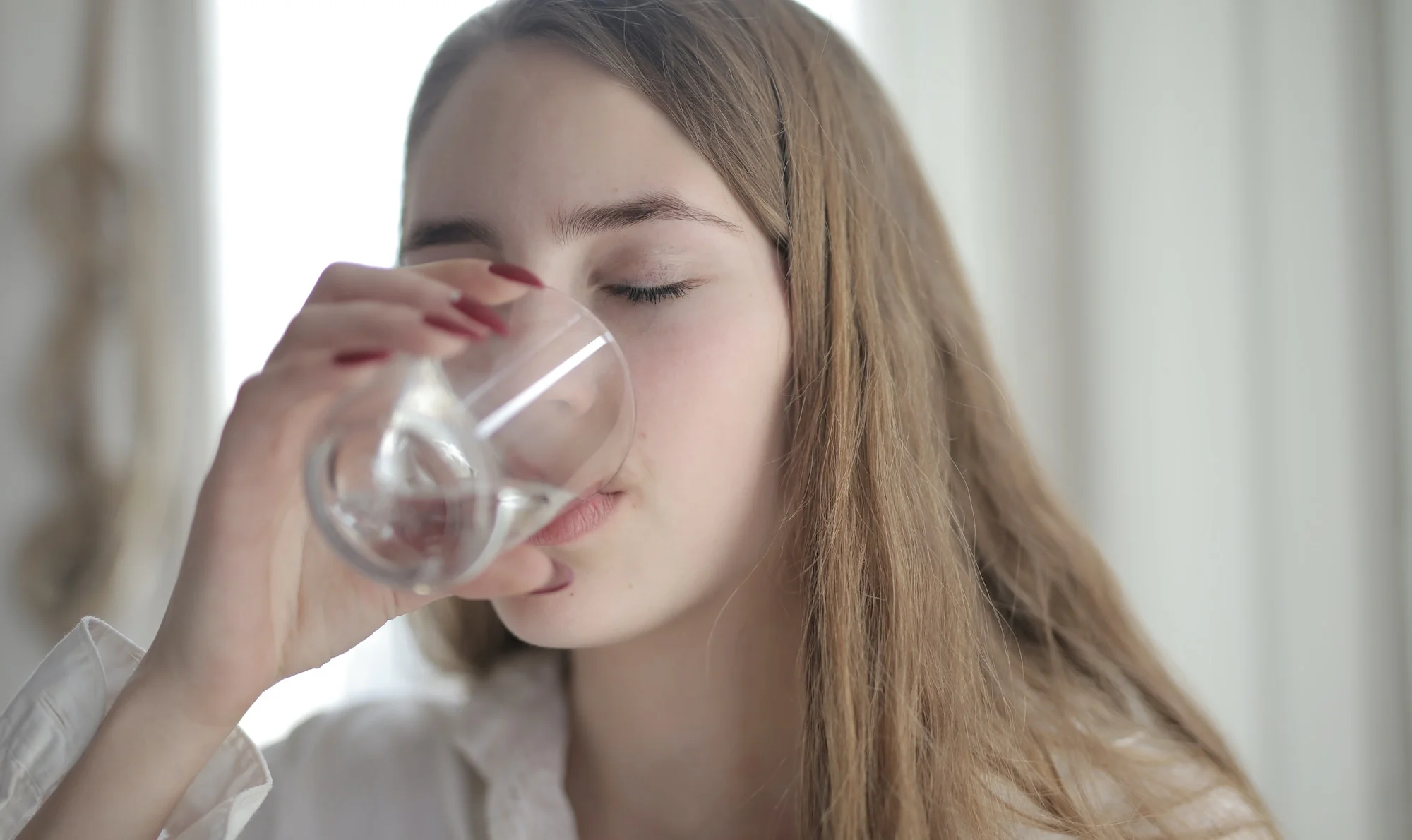Have you ever wondered how much water you should drink each day? It’s a common question that often leads to conflicting answers.
Some say eight glasses a day, while others suggest half of your body weight in ounces.
With so much information out there, it’s easy to feel overwhelmed.
In this comprehensive guide, I’ll dive into the topic and provide you with practical tips to determine the ideal amount of water for your daily needs.
So, grab your favourite beverage and let’s quench your thirst for knowledge!
How Much Water Should I Drink a Day?
Water is essential for our overall well-being. It is crucial in maintaining bodily functions and supporting various physiological processes.
But how much water should you consume daily to stay adequately hydrated?
The 8×8 Rule: A General Guideline
You might have heard about the “8×8” rule, which suggests drinking eight 8-ounce glasses of water per day.
This guideline provides a basic estimate, but it’s important to note that individual water needs can vary based on several factors, including:
- Body weight: Heavier individuals generally require more water.
- Physical activity level: Engaging in vigorous exercise or strenuous activities increases your water needs.
- Climate: Hotter climates and increased perspiration call for additional hydration.
- Overall health: Certain medical conditions may require higher water intake.
How to Calculate Your Personal Water Needs
To determine your specific water intake, you can use a simple formula.
Multiply your body weight (in pounds) by 0.67 (or 2/3) to get the number of ounces you should aim for each day.
For example, if you weigh 150 pounds, you would need approximately 100 ounces (or around 12.5 cups) of water daily.
How Many Bottles of Water Should I Drink a Day?
While it’s helpful to understand your recommended water intake in ounces or cups, you might wonder how many bottles of water you should aim for.
Let’s break it down!
Determining Water Bottle Size
Water bottles come in various sizes, such as 8 ounces, 16 ounces, or even 32 ounces. To calculate how many bottles you need, divide your total daily water intake by the size of your water bottle.
Example Calculation
Let’s say you have a 16-ounce water bottle, and your daily water intake goal is 100 ounces. Dividing 100 by 16 gives you approximately 6.25 bottles.
Since you can’t drink a fraction of a bottle, round it up to 7 bottles. Therefore, you would need to drink around 7 bottles of 16-ounce water throughout the day to meet your hydration needs.
Customizing to Fit Your Water Bottle
Of course, not everyone has the same bottle size preference. If you have a 32-ounce bottle, for instance, you would only need around 3 bottles to reach your goal.
Adjusting the number of bottles based on their size allows you to personalize your hydration routine.
What Are the Signs of Dehydration?
It’s essential to recognize the signs of dehydration to prevent any adverse effects on your health. Some common indicators include:
- Thirst: Feeling thirsty is your body signaling that it needs more fluids.
- Dark urine: Urine colour can be a reliable indicator of hydration levels. Ideally, it should be pale yellow or straw-coloured.
- Fatigue and dizziness: Dehydration can lead to decreased energy levels and feelings of lightheadedness.
- Dry mouth and skin: Insufficient hydration may result in dryness of the mouth, lips, and skin.
What is The Importance of Staying Hydrated?
Staying hydrated is crucial for maintaining good health and well-being. Our bodies comprise approximately 60% water, which plays a vital role in numerous bodily functions.
Water helps regulate body temperature, aids digestion, flushes out toxins, lubricates joints, and supports the transportation of nutrients.
Without adequate hydration, our bodies can experience various health issues, including fatigue, headaches, muscle cramps, and impaired cognitive function.
Debunking Common Water Consumption Myths
Before we delve into the ideal amount of water, let’s debunk some common myths. One myth suggests that everyone should drink eight glasses of water a day.
However, this guideline fails to consider individual factors such as age, weight, activity level, and climate. Another myth revolves around the idea that only water counts towards hydration.
While water is the optimal choice, other beverages like herbal tea, fruit-infused water, and low-sugar drinks also contribute to overall hydration.
Factors Affecting Water Requirements
Determining your daily water intake involves considering various factors. Your age, weight, sex, physical activity level, climate, and overall health all play a role.
For instance, someone who engages in intense exercise or lives in a hot climate will require more water than a sedentary individual in a more relaxed environment.
Additionally, pregnant or breastfeeding women and those with certain medical conditions may have increased hydration needs.
How To Tailor Water Intake According to Your Needs?
To determine your specific water needs, consider the following steps:
- Assess your activity level: Are you mostly sedentary or engage in regular physical exercise? Active individuals require more water to compensate for fluid loss through sweat.
- Consider your body weight: A general rule of thumb is to drink half your body weight in ounces. For example, if you weigh 160 pounds, aim for 80 ounces (approximately 2.4 litres) of water daily.
- Evaluate your environment: Hot and humid climates, as well as high altitudes, increase the need for hydration. Be mindful of these factors and adjust your water intake accordingly.
How To Incorporate Water Into Your Routine?
It’s easy to forget to drink water throughout the day, especially when we’re busy with work or other activities. To ensure you’re staying adequately hydrated, try incorporating these simple strategies into your routine:
- Carry a water bottle with you: Readily available water is a reminder to drink throughout the day.
- Set hydration goals: Aim to drink a certain amount of water by specific times, such as finishing a bottle by lunchtime.
- Flavor it up: If plain water becomes monotonous, try adding natural flavorings like slices of citrus fruits or fresh herbs.
- Eat water-rich foods: Incorporate foods with high water content, such as cucumbers, watermelon, oranges, and soups, into your diet.
Can You Drink Too Much Water?
While staying hydrated is crucial, it’s also important not to overdo it. Drinking excessive amounts of water can lead to hyponatremia, where the sodium levels in your blood dilute.
This can be particularly dangerous for athletes or those engaging in prolonged physical activity.
Listen to your body and drink when you’re thirsty, but don’t force excessive amounts of water without a genuine need.
Also Read:
Tips to Lose Weight in Just 2 Weeks
How Many Ice Baths You Should Take Each Week
Conclusion
Staying properly hydrated is essential for overall well-being. Although there are general guidelines for water intake, it’s important to remember that individual needs may vary.
By considering factors such as age, sex, activity level, and climate, you can determine the appropriate amount of water you should drink daily.
Make hydration a priority in your routine and incorporate strategies to ensure you’re meeting your water intake goals.
Now that you better understand how much water you should drink, wouldn’t you like to receive more health tips and articles directly in your inbox?
Sign up for my newsletter today and stay informed about the latest wellness trends and practices. Don’t miss out—subscribe now!







